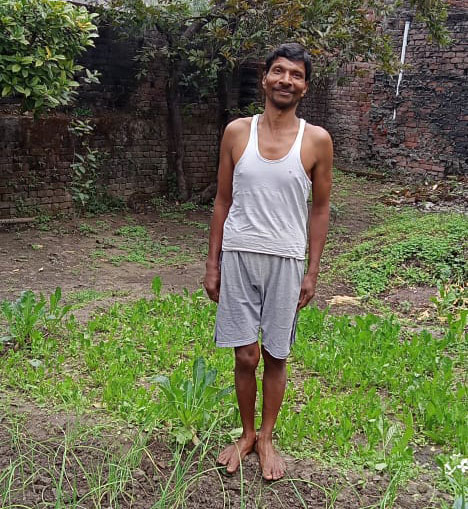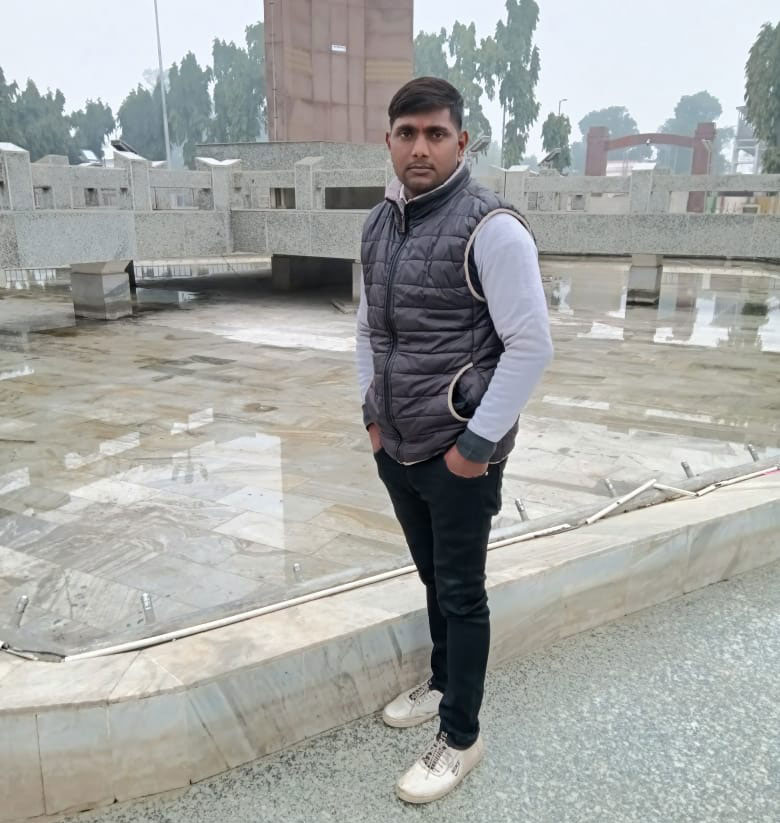The fair price shops of Uttar Pradesh, India
Uttar Pradesh’s fair price shops are helping improve vaccination rates amongst marginalised sections of the community.
- 15 February 2022
- 4 min read
- by Aayushi Shukla

A fair price shop in Padrauna, a small town in Uttar Pradesh, is bursting with a crowd of people waiting in long lines to receive their share of rations.
Standing in line is Basudev, a resident of Padrauna: “We receive rice, wheat, salt and cooking oil from the ration store. Our Prime Minister has saved the lives of our children. I lost my job in the pandemic. I earned 350 rupees ($ 5) every day. Without the money, I couldn't even buy food for long.”
“The kotedar told us that the COVID vaccine will save me and my children. I got my family vaccinated that day.”
The small towns of Uttar Pradesh have recently seen a spike in vaccination coverage, attributed to the fair price shops being encouraged by the government to educate people about the benefits of vaccination while distributing free rations to them.
Residents like Basudev get free rations under the National Food Security Act 2013, which gives families who live below the poverty line 5kg of food grains at incentivised prices every month. Different states have different food components handed out via the public distribution system (PDS). The ration shops who distribute these food grains under PDS are called fair price shops.

In 2020, the government launched the Pradhan Mantri Garib Kalyan Yojana scheme to distribute an extra 5kg of free rations to poverty-stricken people during the pandemic.
“We are asked to speak to people who come to take rations and make them understand that the vaccine is good for them. The government is also setting up vaccination camps in some ration shops, so people coming to collect food grains can be vaccinated,” says Vishwas Bahadur Chaudhary, the head (kotedar) of the fair price shop.
Have you read?
On asking how the fair price shops can encourage people to get vaccinated, the kotedar says, “The people who come to get free rations are from the lowest income group. Their vaccine hesitancy stems from either being unaware of its benefits or the misunderstanding that the vaccine might harm them. Our job is to educate all those people that vaccines will actually save them. We also guide them to the nearest vaccination camp set by the government.”
“The kotedar told us that the COVID vaccine will save me and my children. I got my family vaccinated that day. I also understand that it could be good for us, otherwise, the government wouldn't tell us to do it,” says Indu Devi, another ration beneficiary.
“I think the government is trying to reach people where illiteracy is driving vaccine hesitancy. People listen to ration shop owners as they put food on their plates,” says Arun Gautam, a resident doctor in Padrauna.
“Our rural people don’t have a smartphone or TV, so the right information has not reached this marginalised sector. Lack of information about vaccines has made them turn towards saints who make fake promises of treating the virus and give them false information about the vaccines. When we talk to people about vaccines and show them our own vaccine certificates, it encourages them to get it,” says Rameshwar, a worker at the fair price shop.

The PDS system came to the rescue of people during the stringent lockdown when workers had no work and hence no daily wages, saving millions of people from dying of hunger. Now, in addition to displaying vaccination instructions in the shop and spreading awareness regarding the benefits of COVID-19 vaccination among people who come to receive rations, the government has also asked fair price shops to collect vaccine data.
“Since the ration fair price shops already have the family records of people receiving rations in their area, it does become easier for the government to identify areas in the country where the vaccination rate is low. The government can then work to get the vaccination rate higher in that area,” says Dr Arun Gautam.
More from Aayushi Shukla
Recommended for you








